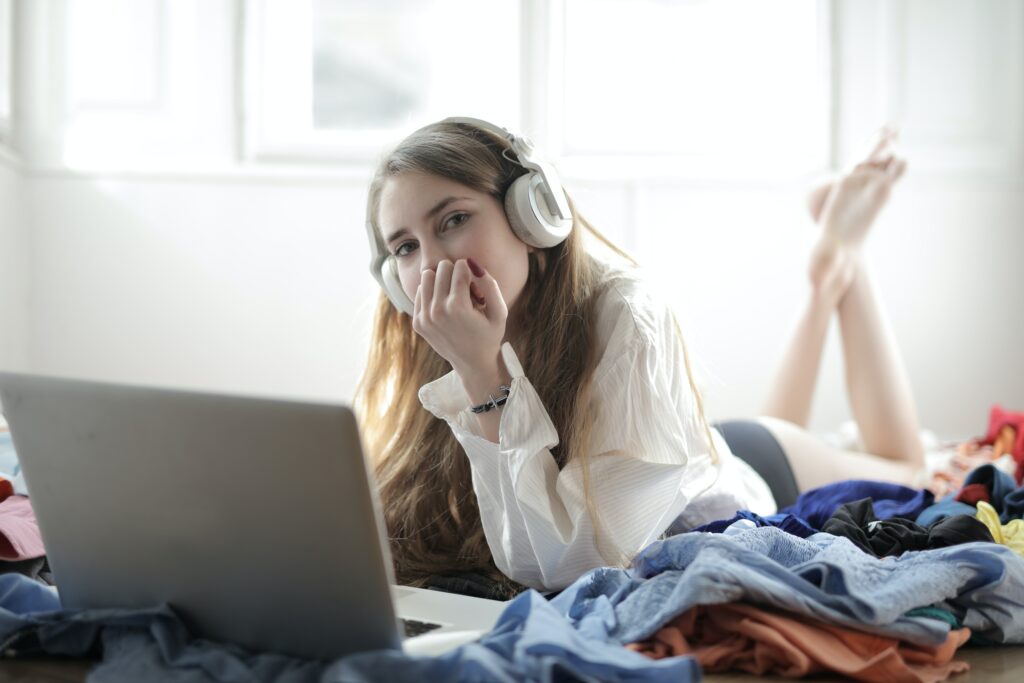By SWNS Staff
NEWS COPY w/ VIDEO + INFOGRAPHIC
More than half of Americans say they’ve become more sensitive to noise since the pandemic started, according to new research.
The new survey asked 2,003 U.S. respondents about their hearing health ahead of World Hearing Day on March 3rd.
The poll found that more than four in 10 have become more sensitive to loud music (43%) and loud conversations (42%) since the pandemic began in early 2020.
Those distractions can also be painful — 52% said loud noises give them headaches, with the average respondent experiencing six a week.
Conducted by OnePoll on behalf of Loop Earplugs, the survey also found that although 30% enjoy listening to music while working, 54% revealed they’re often incompatible with the sound preferences of other household members.
That’s likely why 31% of respondents would love to turn the volume down when someone in their household is listening to something that is distracting them.
The poll also shed some light on the sounds people dread hearing the most from other household members, with loud phone conversations (29%) and loud chewing (29%) topping the list.
In addition, respondents said they spend, on average, more than four hours a week wearing headphones without actually listening to music.
“It’s clear that Americans are struggling with the distraction of loud noises in everyday life. Six in 10 respondents said that they wish they could wear earplugs to help take the edge off, but still hear important things happening around them,” said Maarten Bodewes, co-founder of Loop Earplugs. “Using earplugs that are specifically designed to reduce background noise is a great way to stay focused without being cut off from what’s going on around you.”
Seventy-six percent said they have a strong sense of hearing, and 77% believe they take good care of their ears.
Yet nearly half said they “always” or “often” experience sensations that are similar to symptoms of misophonia, a disorder in which hearing small repetitive sounds can trigger an intense reaction of anger or disgust.
Another one in three respondents said they have recently experienced ringing in their ears (31%), have trouble hearing high-pitched sounds (28%) and have become hypersensitive to specific sounds (30%).
Six in 10 agreed they would wear earplugs to help with noise sensitivity, but think people will judge them if the earplugs are noticeable.
Just over seven in 10 have used earplugs to help them fall asleep at night, and almost half (49%) claim to use them at least once a day.
"The data speaks to the need to empower people to live their life to the fullest by taking control over how they hear life. You can do this by being aware of noises that trigger you or by paying more attention to damaging noise levels and by actively taking steps to reduce noise whenever needed, without the fear of being judged or stigmatized," said Dimitri O, co-founder of Loop Earplugs.
MOST DISTRACTING OUTDOOR SOUNDS
- Vehicles on a busy road (sirens, horns honking, etc.) - 34%
- Loud music - 33%
- Roadwork or other construction - 33%
- Babies crying - 32%
- Passersby snorting, sneezing or coughing - 30%
- Kids playing loudly - 29%
- Loud conversations - 28%
- Train or metro - 28%
- Wildlife - 23%
MOST DISTRACTING INDOOR SOUNDS
- Noise from neighbors - 30%
- Noise from other people’s personal electronics - 30%
- Arrhythmic house sounds (ex. leaky faucets, creaky pipes) - 29%
- Kitchen appliances (ex. blenders, food processors, etc.) - 29%
- Noise from other household members/Conversations - 29%
- Kids playing loudly - 28%
- Vacuum cleaners - 27%
- Ambient white noise (ex. refrigerator running, fans whirring) - 26%
- Noise from pets - 24%
